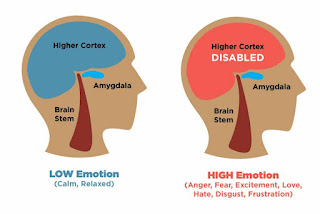Why Competitive Sports for Children?
Some parents or caregivers believe that exposing children to physical exercises waste time, energy, and money. They thought that it is better for children to stay at home and complete their homework, instead of playing indoor or outdoor sports. However, competitive sports are advantageous to children physically, emotionally, and socially.
First, children can gain
physical benefits from competitive sport participation. They can build strong
muscles and bones as they are active physically. For instance, playing
badminton, which is very popular in Asian countries such as Indonesia, China,
and Japan, requires players to move around to score. Defense, jumping smash,
and netting, indeed, push the players to step back and forward, left and right
side at any orders. In other words, it is downward impossible for children to
stay inactive while in the court. Therefore, active movement strengthens the
whole parts of their bodies, including their ankles and sleeves.
Furthermore, emotional
maturity is another beneficial aspect that the children obtain from playing competitive
sports. It is undoubtedly true that there will be a looser and a winner in the
games. As previously mentioned, the badminton players can sometimes win,
raising the happiness level, or loose, leading to sadness and pressure. To deal
with, they appreciate a better performance and skills of their opponents as to
learn how to perform more astonishing play in the upcoming game. Indeed, this
could be an important and valuable life lesson for children that they are not
going to be a looser or a champion at all times. There must be up and down at both
at match and life outside the court. Therefore, children who actively
participate in the games can cope with their stress and frustration well especially
when they are unlucky.
Finally, children can
improve their social skills upon involving in competitive sports. Since they
have to work in a team, not in person, they have to share common goals with
their teamwork. It can be exemplified by the fact that all players in the
soccer must cooperate and work together to score points over the other team. The
backs can stop the players from other team for scoring goal. But, it does not
mean that they have to work hard by their own to make the goal. They should
pass the controlling ball to the other players of their team closer to the keeper
of the opposite team to win the match, not drive the ball individually.
Therefore, working as a team in sports can reflect how important it is to
achieve collective goals in social life that the children need to manifest.
In brief, competitive
sports are beneficial for children, not only in terms of physical and emotional
development, but also social skills of theirs. Children who are raised in that
sportive environment would promote a healthier life and a better well-being. It
is strongly recommended for all parents or caregivers to encourage and
facilitate their infants to participate in sports, regardless they win or lose.
Unless the screen time of the children is rocketing.


Comments
Post a Comment